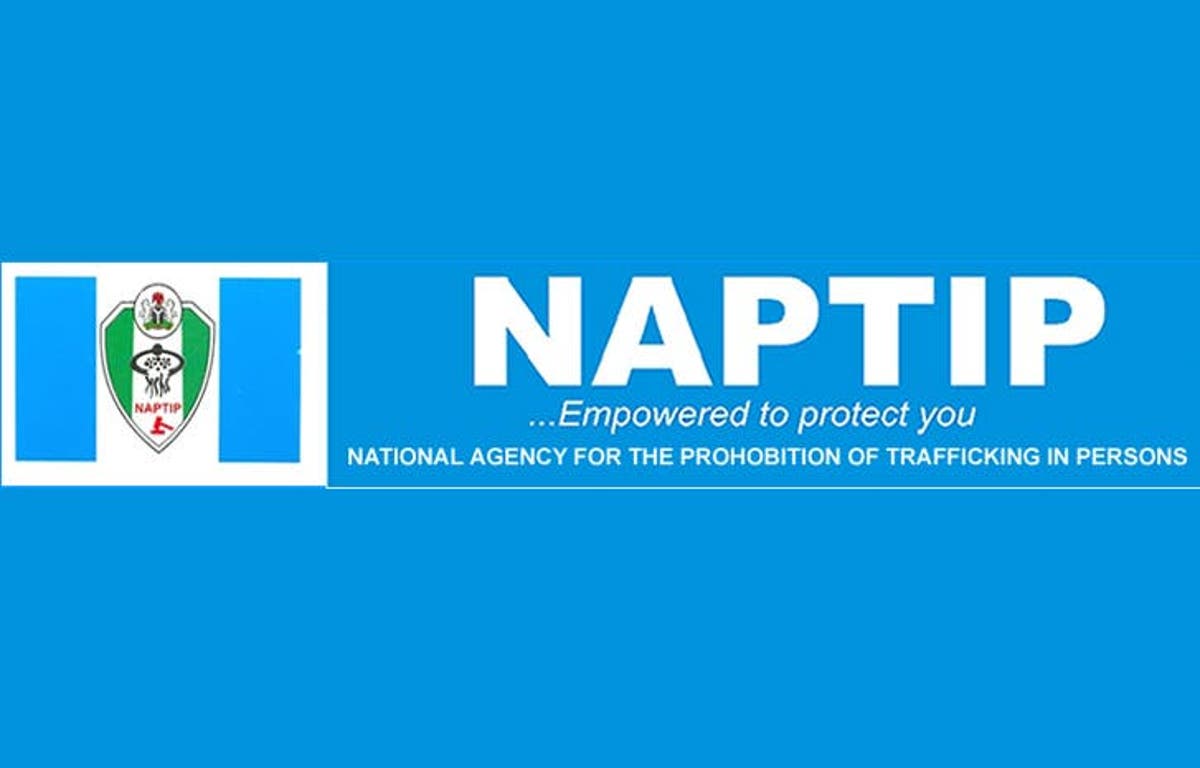Child trafficking is not intractable
The scenario that led to the recent rescue of 19 children from traffickers in Calabar, Cross River State, illustrates how porous the country’s internal security architecture has become. The children, whose ages range from 3 to 6 years, were reportedly moved in batches from Kebbi to Calabar when officials of the National Agency for the […]

NAPTIP logo
The scenario that led to the recent rescue of 19 children from traffickers in Calabar, Cross River State, illustrates how porous the country’s internal security architecture has become. The children, whose ages range from 3 to 6 years, were reportedly moved in batches from Kebbi to Calabar when officials of the National Agency for the Prohibition of Trafficking in Persons (NAPTIP) intercepted some of them.
While addressing journalists at the chambers of the government house in Birnin Kebbi, Governor Nasiru Idris of Kebbi State said the children were rescued as one of the traffickers arrested by officials of NAPTIP confessed they had earlier moved some of them to Calabar.
“The traffickers moved the children to Calabar under the guise of education; with some of them having been sexually abused and subjected to other heinous activities”, the governor said. He disclosed that based on confessional statements, the remaining children were rescued from the traffickers in Calabar; adding that three of the suspects were arrested.
The state Commander of NAPTIP, Misbau Iyan Kaura, said the traffickers usually moved the children to their hideout in Zamfara State from where they were moved to Calabar. He said his men were able to intercept the last batch of the children, leading to the rescue of others based on a tip-off.
- Building on strong foundations: Charting the course for public-private transitions
- Fire destroys mast inside Kano hospital
Many other child trafficking cases have in the recent past been reported in Sokoto and Kano states. A few weeks before the Calabar syndicate was busted by NAPTIP, the Anambra Police Command arrested a suspect over alleged trafficking of teenagers in the state. The police spokesman in the state, Tochukwu Ikenga, said the suspect had allegedly trafficked many teenagers to neighbouring countries like Ghana and Benin Republic.
Ikenga said the suspect was apprehended following increasing reports of missing teenagers in Anambra State. He also said some of the victims who were taken to Ghana have safely been recovered and returned to Nigeria, and that a search was ongoing to apprehend other members of the trafficking gang.
Ikenga’s statement reads in parts that: “The Anambra Police Command has in custody a suspect (name withheld), a member of a gang that specialises in child trafficking between the age bracket of 13-16 years to neighbouring countries like Ghana, Benin Republic, etc”.
In another incident, the Imo State Police Command arrested three people suspected to be involved in the abduction of children with the intention of selling them for monetary gains. A press release issued by the police spokesman in the state, ASP Henry Okoye, disclosed that detectives, through intelligence gathering, succeeded in smashing the syndicate which specialised in child trafficking within the Imo-Abia axis. The syndicate engaged in the abduction of children from unsuspecting parents.
The sting operation led to the rescue of three children, who were abducted on July 4, 2024, in Ndinwegbu Umuoma, Onicha and Ezinihitte, Mbaise LGA. The suspects arrested, according to Okoye, lured the children into their tricycle while they were playing outside, and then subsequently transported them to a hidden location in Aba where they were sold for N1 million,” he said.
Earlier, in June this year, three suspected human trafficking syndicates operating in Ifitedunu, Dunukofia Local Government Area of Anambra State, were also arrested. This was made possible by the combined efforts of the state’s Ministry of Women Affairs and Social Welfare and some security operatives. The arrest followed a notification to the state Commissioner of Women Affairs Ministry, Ify Obinabo, by the chairman of the community, Arinzechukwu Azodo.
These are just a few examples! Child trafficking has continued to thrive in Nigeria because the prosecution of the few suspects apprehended by law enforcement agents is rarely conclusive, even where there is sufficient evidence, including confessional statements, to jail them.
Were the country’s security agents doing enough to check the menace of child trafficking, suspected traffickers of the 19 children would not have succeeded in moving their victims, in large numbers, through several dozens of police checkpoints from Birnin Kebbi to Calabar without being trapped.
Child traffickers are not spirits, but criminally-minded Nigerians whose activities could be tracked at checkpoints through effective intelligence and vigilance. Unlike the constant crackdown on drug addicts and proprietors of baby factories, the comparatively low rate at which child trafficking syndicates are smashed further explains how security operatives care less about the rights and safety of the Nigerian child.
More serious than the failure of our security agencies to adequately protect children from the criminal activities of traffickers is the collapse of the family structure. Where parents show enough love, care, and attention to their children, it would take traffickers a lot of trouble to have the kind of atmosphere required to perpetrate their evil activities.
While we call on parents to take their parental responsibilities very seriously, Daily Trust urges the police to increase and intensify their intelligence and vigilance on child traffickers. Child trafficking is not, and should not be intractable in Nigeria.
